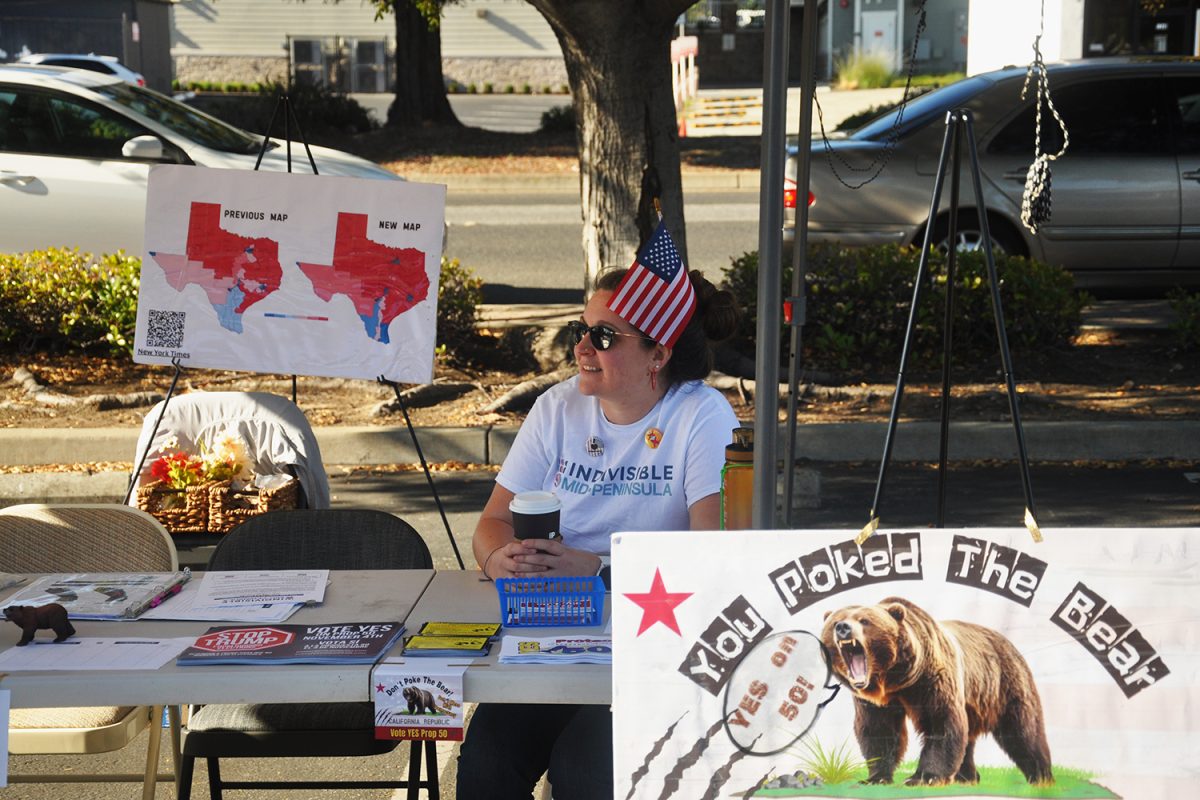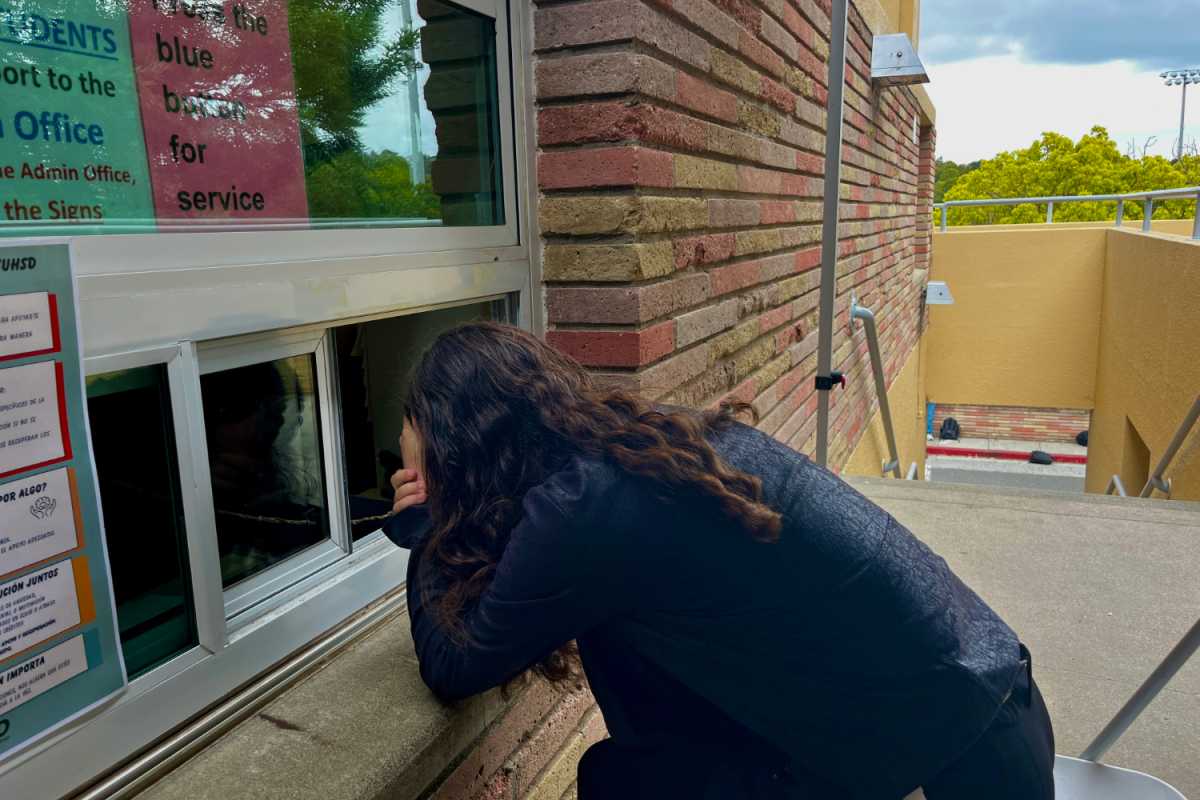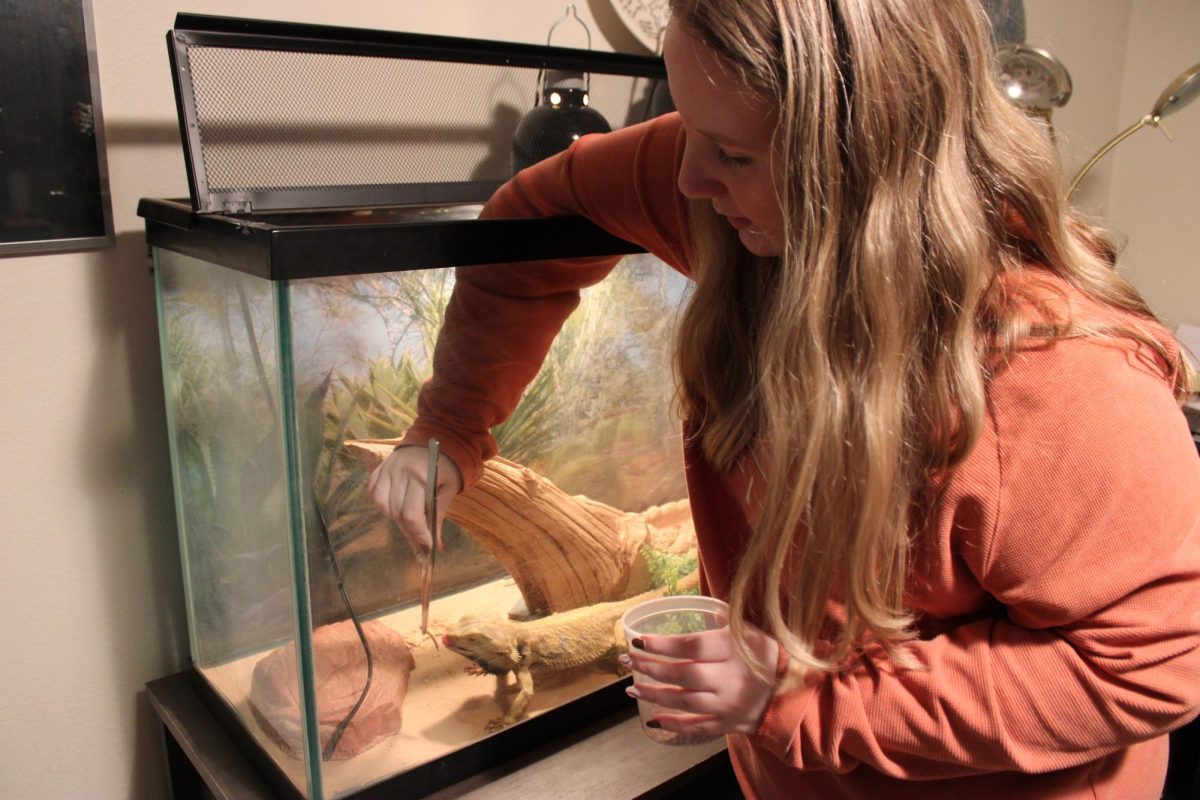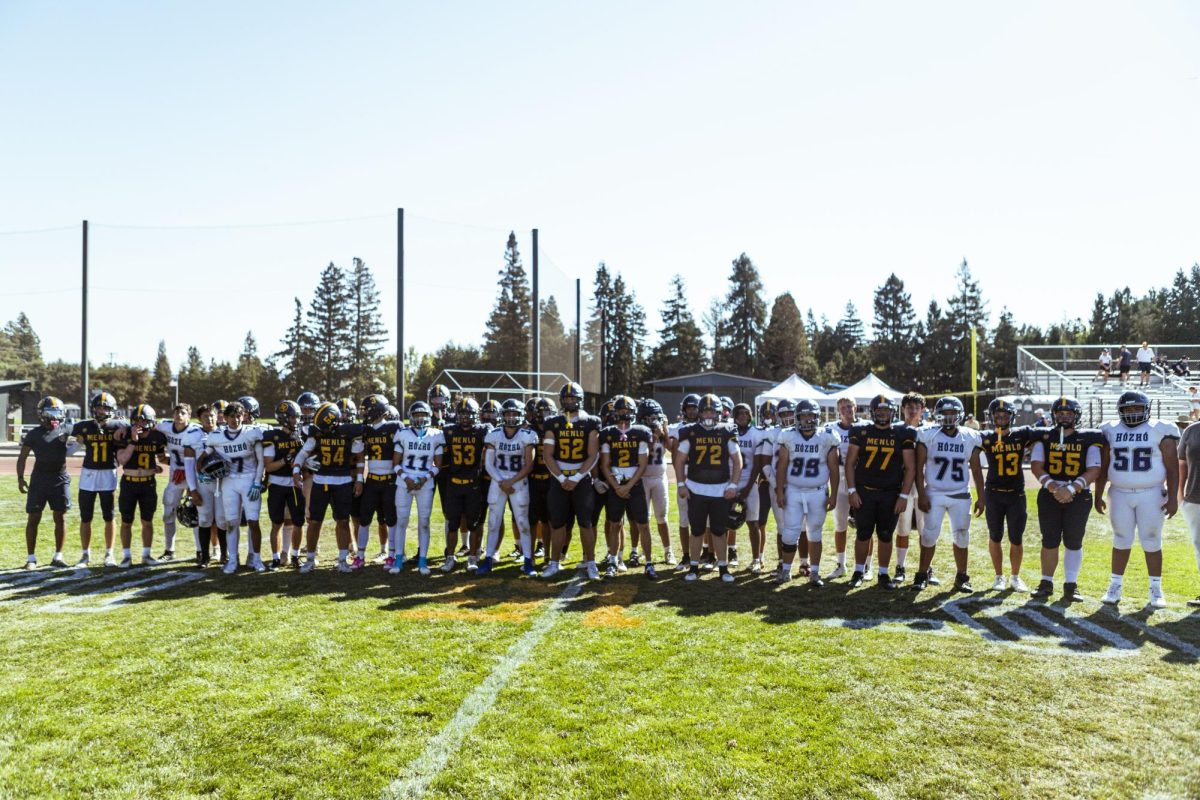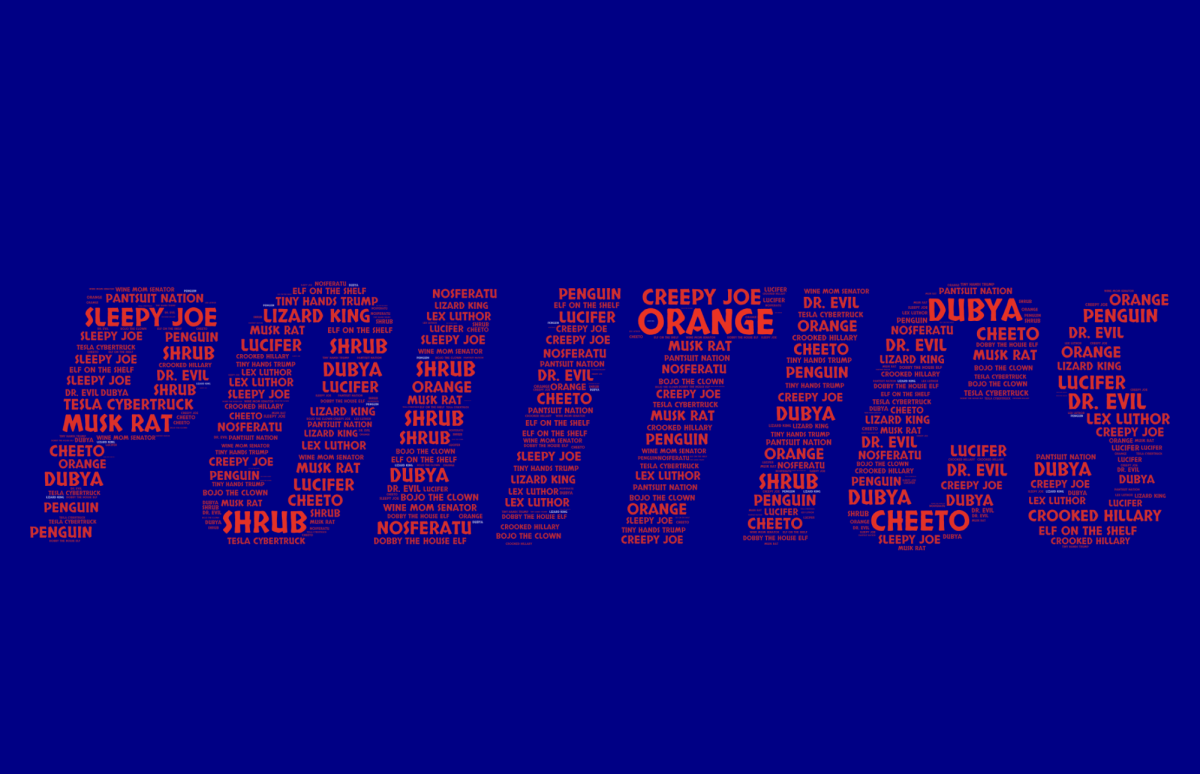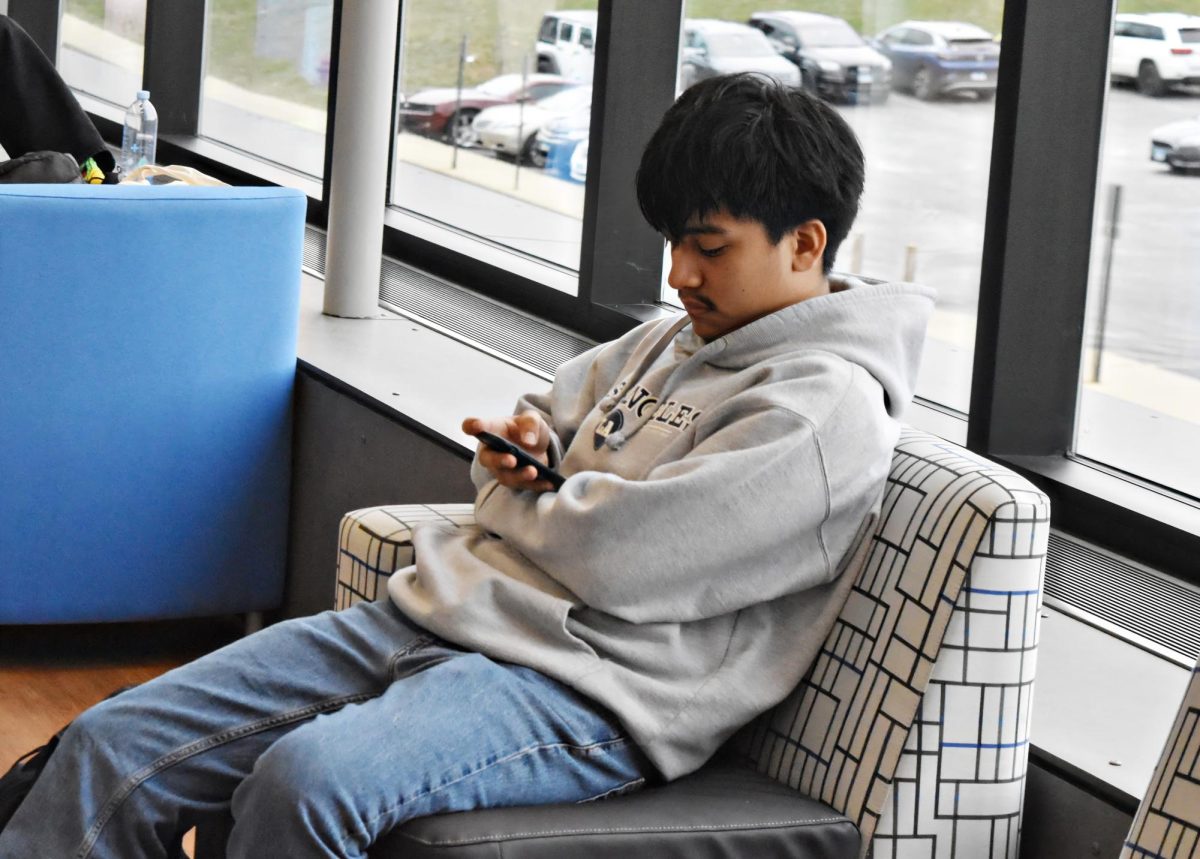Editor-in-Training Gabriella Castro is a two-year member of the Wildcat Chronicle who sometimes writes opinion pieces. The views expressed in this piece are her own.
Educators are observing a concerning trend: fewer students are showing an interest in reading and writing. This growing disinterest among younger generations raises concerns about the future of these essential skills and their broader implications for society.
The school library that was once filled with the sound of students flipping through books is now eerily silent, broken only by the hum of phones as users scroll through social media feeds. Technology has transformed how society operates, with schools and workplaces increasingly depending on it to simplify tasks. Each day brings new updates—from software to the latest iPhone that enhances their technology. While technological advancements offer efficiency, they also present shortcuts that discourage effort and critical thinking in students.
In classrooms, cheating has become alarmingly easy. Students use AI tools or simple web searches to complete assignments that undermine authentic learning experiences and reduce the need for thoughtful engagement. Meanwhile, textbooks gather dust on the shelves, and spaces designed for collaborative learning are now dominated by screens. The allure of instant answers has dulled the desire to engage with books, newsletters, or other reading materials.
While the internet provides a wealth of educational resources, its convenience may be eroding habits like sustained reading and thoughtful writing—raising concerns about long-term effects on critical thinking, creativity, and empathy.

For many students, the concept of reading for pleasure has narrowed to the digital world. The once-bustling library shelves are now sparsely browsed, while the glow of smartphones dominates leisure time. Social media platforms like TikTok and Instagram have reshaped entertainment, encouraging brief, attention-grabbing interactions over sustained, reflective experiences.
“I definitely think that people rely on their cell phones more rather than [try to] read books,” junior Patricia Marszalek said.
However, some students still find joy in traditional reading despite the distractions of social media.
“If I had to decide between scrolling through my phone or reading a book, I would probably pick a book,” Denise Herrera, a senior and avid reader, said. “I feel like more is fulfilled when reading because the journey to the end is always entertaining. The mixed emotions I feel whenever I’m closer to finishing a story is an incredible sensation—better than a gamble as to whether or not I get content I like and not some content farmer’s livestream.”
Yet, there is no denying there is a shift – and it is evident even at the highest levels of education. A 2024 Atlantic article, “The Elite College Students Who Can’t Read Books,” highlights how students at top universities struggle to complete entire books, a problem many professors attribute to the distractions of smartphones and a broader decline in sustained reading habits. The article notes that even among high-achieving students, engagement with literature has suffered due to changing curricula and a culture that prioritizes short-form content over deep reading.
Carol Naughton, LRC Director, takes issue with the idea that technology is solely to blame for declining interest in reading, however.
“I would disagree with the premise that the increasing use of technology is causing an interest in books to decline. In fact, the rise in particular social media trends such as #BookTok has increased students coming in requesting particular books they saw or heard about online. Students here also prefer traditional print books over eBooks,” Naughton said.

While social media trends like #BookTok have sparked renewed interest in certain books, many students still struggle to make time for reading. It is important to note that while many students have busy schedules due to part-time jobs, sports, and clubs, balancing these activities with academic priorities—especially reading and writing—is crucial.
People, in general, are reading less frequently than they used to. Over the years, there has been a noticeable decline in the number of bookstores.
Reading for pleasure has largely been replaced by online platforms that demand attention. Social media sites like Facebook, TikTok, and Twitter have changed societal expectations of entertainment: in the past, leisure time often revolved around activities like writing letters, reading novels, or enjoying comics. Today, these have been replaced by the immediacy of social media.
“I get bored really easily, like if I just stare at [a book] for twenty minutes, I [would] just rather do something else,” junior Abdulaziz Turaev said.
However, the West Chicago Community High School Learning Resource Center has been actively working to combat this shift by making books more engaging and accessible to students.
“As librarians, our goal is to try to develop an interest in reading and to make our collection as accessible as possible to our students. We try to follow and set up our displays to feed into popular trends,” Naughton said. “We currently have an ‘Inside Out 2’ display and have had displays titled ‘As seen on Netflix’ and ‘#BookTok.'”
The library has also taken steps to make browsing easier.
“We have bought a ton of bookstands so that we can have more outward-facing books for better browsing, as well as adding genre-based color coding to our fiction collection. We did a giant reorganization to our nonfiction, creating sections such as Personal Growth, Business, and True Crime to help increase browsability and access,” Naughton said.
Despite these efforts to make books more accessible and appealing, the broader trend of declining engagement with reading and writing remains concerning. The consequences of this shift in reading and writing extend beyond personal habits, though. Reading and writing establish a connection in a person’s mind; cultivate attention to detail, broaden perspectives, and enhance historical and cultural awareness. If people stop reading, their understanding of history, perspective, and critical thinking will fade over time.
Many readers have noticed this change firsthand. Herrera feels that fewer people appreciate the depth and complexity of storytelling in the way they once did.
“There’s definitely a disconnect in recent times when it comes to stories,” Herrera said. “Everything I enjoy about them—like symbolism, flawed characters, and never-ending plot twists—no longer seems to draw interest for others these days. The world’s been moving so fast not many have the chance to truly enjoy a book anymore.”
The Washington Post discusses these very ideas in the feature, “The Long, Steady Decline of Literary Reading,” by Christopher Ingraham.
“Changing reading habits are indeed making us less able to see things from other people’s points of view, that could have drastic consequences across the board,” Ingraham said.
Writing plays a vital role in the learning process, too. Whether addressing personal issues or exploring creative ideas, writing encourages self-expression and deeper thinking. However, some students believe that writing feels like a chore because of its frequent use in school assignments. This perception may stem from overreliance on prescribed answers, which diminishes students’ confidence in developing original ideas.

Many teachers struggle to connect with students, adjusting their teaching styles and expectations in response to this generational shift. Students do not participate in class or ask for help; they just stare silently waiting to be taught or use their phones in boredom. Even when teachers provide study guides to help with finals preparation, many students ignore them, avoiding the reading or writing needed for meaningful study.
Writing is very much important—it preserves storytelling, history, and memories. However, many students today seem disengaged from reading and writing. This disengagement is evident in both declining reading and math scores nationwide, and daily observations, such as the small number of students actively working in the West Chicago Community High School library compared to those idly scrolling on their phones.
Some students point fingers at the education system, arguing that teachers do not inspire or motivate them. While there are certainly issues involved, this criticism often overlooks a larger societal shift. The cultural emphasis on convenience and instant gratification can hinder critical thinking and the willingness to put in effort. Addressing this problem requires both educators and students to acknowledge their shared responsibility in fostering a culture of learning.
WEGO has adopted measures like phone jails, collecting phones when students leave class, and confiscating devices altogether. While these steps are intended to minimize distractions, they focus only on the symptoms, not the root causes, of disengagement. The unfortunate reality is that for students to enhance their writing skills and cultivate a love for reading, they need to engage in these activities regularly and take genuine pleasure in them.
To strengthen student engagement, WEGO could amplify its efforts by promoting existing programs like creative writing and book clubs more effectively. Increasing visibility and availability through classroom announcements, social media, or by showcasing student work could encourage more participation. Furthermore, integrating these clubs into the school day through workshops or partnerships with English classes may help students recognize the value of reading and writing beyond the classroom.
Creating spaces where students can explore their interests in a supportive environment could reignite their passion for reading and writing—skills that not only enrich individual lives but also shape the future of an informed and empathetic society.
This story was originally published on Wildcat Chronicle on January 27, 2025.



